QCF: Yakuza: Like A Dragon
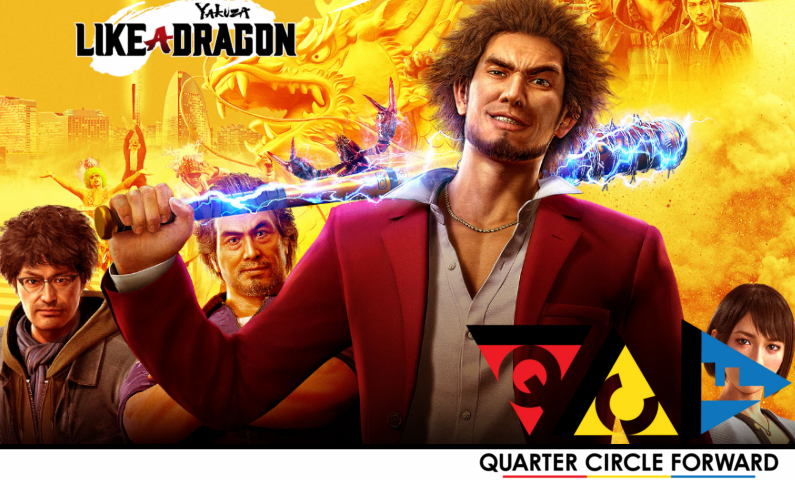
 espite all of the social and technological advancements we’ve made over the last century, there’s an old saying that still gets thrown in the face of anything progressive to this very day—the tired phrase of “if it ain’t broke, don’t fix it.”
espite all of the social and technological advancements we’ve made over the last century, there’s an old saying that still gets thrown in the face of anything progressive to this very day—the tired phrase of “if it ain’t broke, don’t fix it.”
There are merits to the sentiment though—it isn’t often that an open-world action-adventure dynamic like that of the Yakuza series is able to work as well as it has for the last fifteen years, as each entry only worked to improve upon the foundation of the 2006 PS2 original. Fortunately, that isn’t the case here, far from it; Ryu Ga Gotoku Studio's Yakuza: Like A Dragon is a revival, unlike anything we’ve seen from a legacy franchise before it, taking the series to a new generation of players while successfully carrying it to new heights for longtime fans all the same.
Seemingly ending the series with Kiryu Kazuma on a high note with Song of Life, SEGA’s star studio set to work on two new prospects that would push them outside of their wheelhouse in the twilight years of the PlayStation 4. While the steadfast spinoff, Judgment, ended up being a navel-gazing vanity project that would only appeal to hardcore fans of the source material, the other endeavor would be the next mainline entry into the Yakuza series. Surprisingly enough, of the two, it’s the game that’s far less arrogant in its approach, giving off a vibe that’s far more welcoming as a result, especially to veterans of the property.
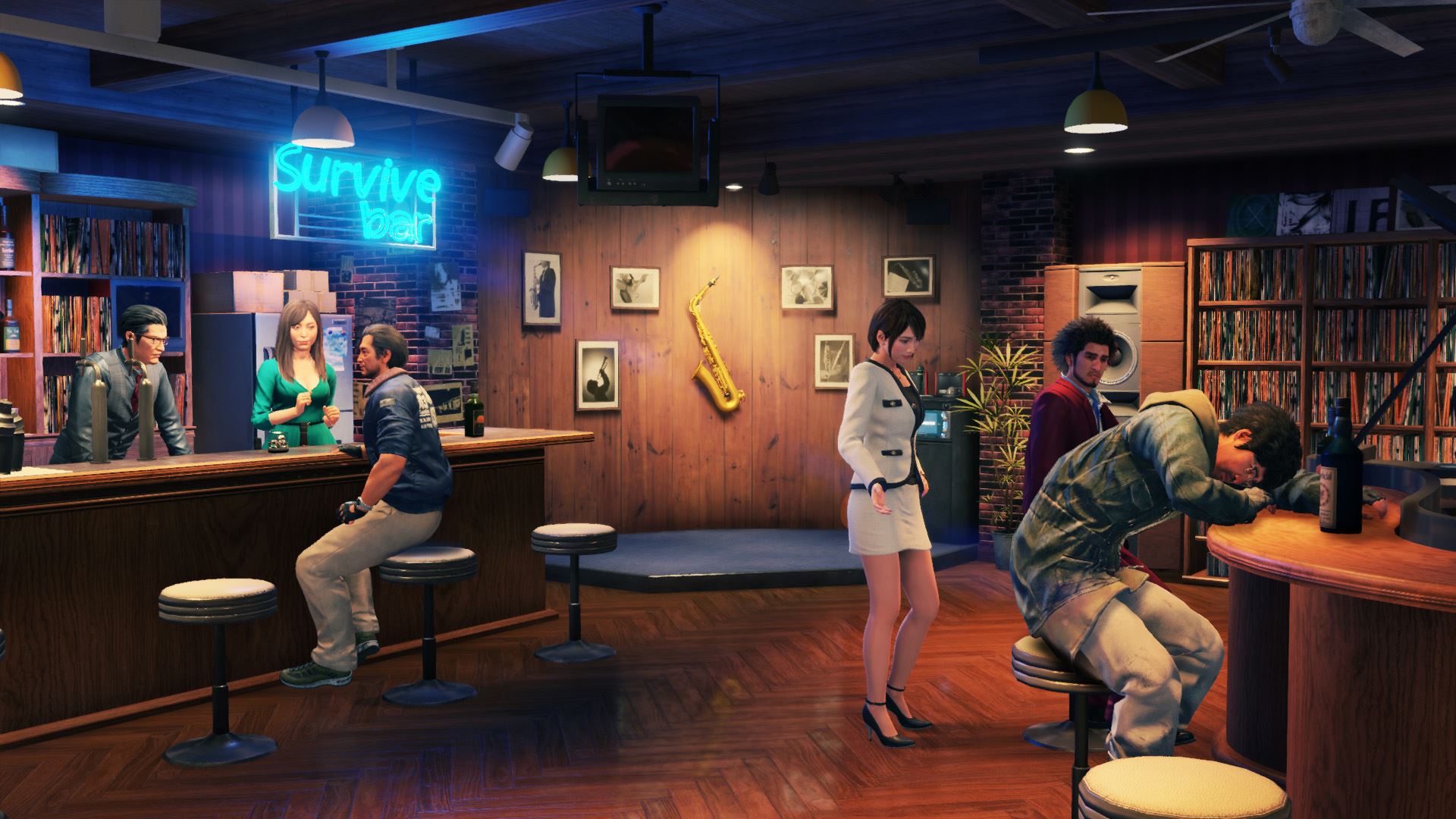
As intriguing as the transition to RPG turn-based battling may initially have been, admittedly, there was a lot of apprehension of whether or not this new sequel would be able to maintain the trademark charm and harrowing action the franchise is known to deliver. Ryu Ga Gotoku pulls it off thanks in large part to the humility it had going into the genre, and the respect it gave to the peers that defined it.
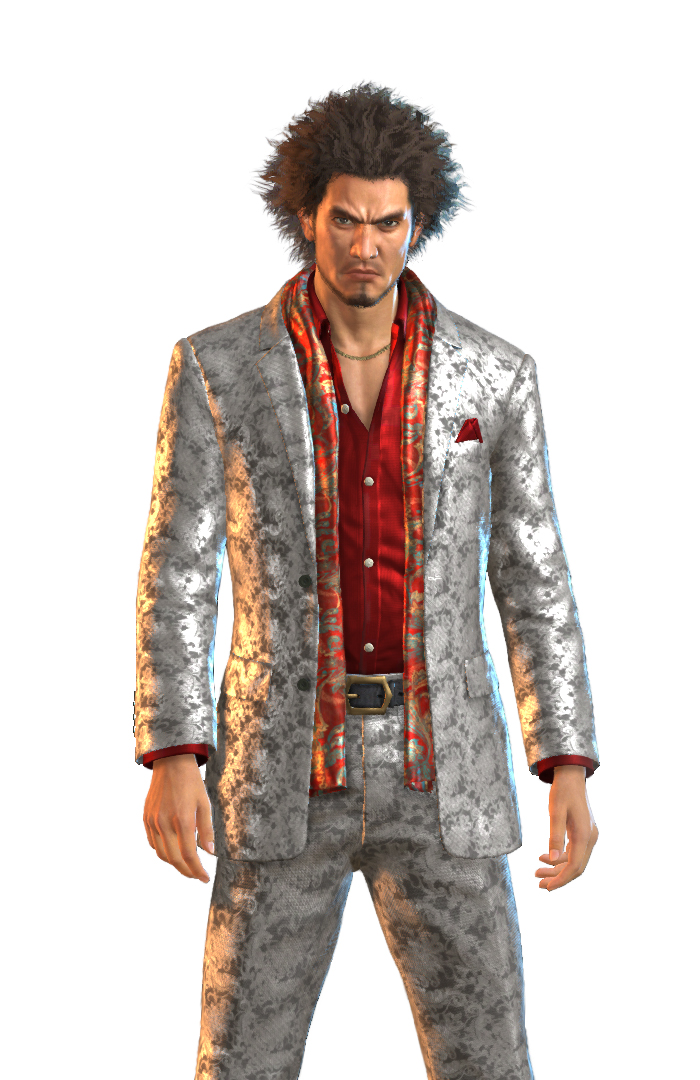 For starters, no RPG worth its gold is anything without a larger-than-life hero to lead its adventure, and while Kiryu’s shoes are some mighty deep Wingtips to fill, newcomer Ichiban Kasuga more than makes up of it after just mere hours into the story. Elements like characters, settings, and narratives that Role-Playing Games are renowned for is hardly new territory for the world of Yakuza, but Like A Dragon takes it a step further with a protagonist that isn’t influenced by the world around him, but rather the opposite instead. While the fuzzy-maned gangster shares a lot of familiar qualities with his predecessor, like his sense of pride, and moral compass, Kasuga is far less stoic in his composure. Ichiban’s a man of many emotions, be it angry, silly, or depressed, but what’s important is that he’s never afraid to express them—regardless of how wildly it may affect anyone’s perception of him at times. Like A Dragon has so many of these moments where the impression Kasuga makes on a situation puts the burden of response on it instead of him, creating a fantastic dynamic that’s only furthered by his emotive personality.
For starters, no RPG worth its gold is anything without a larger-than-life hero to lead its adventure, and while Kiryu’s shoes are some mighty deep Wingtips to fill, newcomer Ichiban Kasuga more than makes up of it after just mere hours into the story. Elements like characters, settings, and narratives that Role-Playing Games are renowned for is hardly new territory for the world of Yakuza, but Like A Dragon takes it a step further with a protagonist that isn’t influenced by the world around him, but rather the opposite instead. While the fuzzy-maned gangster shares a lot of familiar qualities with his predecessor, like his sense of pride, and moral compass, Kasuga is far less stoic in his composure. Ichiban’s a man of many emotions, be it angry, silly, or depressed, but what’s important is that he’s never afraid to express them—regardless of how wildly it may affect anyone’s perception of him at times. Like A Dragon has so many of these moments where the impression Kasuga makes on a situation puts the burden of response on it instead of him, creating a fantastic dynamic that’s only furthered by his emotive personality.
A Hero is nothing without the support of their comrades though, and the supporting cast of misfits that follow the ex-Yakuza around on the Ijincho are incredible foils to his expressive disposition. Whether it’s Nanba’s pessimist outlook, Adachi’s traditional wisdom, or Saeko’s modernized street smarts, each character brings a character trait that complements the different facets of Ichi while managing to take away a bit of character development of their own form him.
Then there’s the story; with all the dense highs and lows of the franchise’s returning themes like corporate conspiracies and political corruption, the main message of Like A Dragon centers on classism and birthrights, and the way it addresses these elements captures the human condition in ways that the series has never been able to before.
At first, the setup seems all too familiar, as the RPG sequel parallels its Star-Yakuza with the Dragon of Dojima, as Ichiban Kasuga willingly turns himself in for a crime he didn’t commit in order to protect the crime family he so lovingly served, landing him eighteen years in the slammer. Just to expand a little beyond the game’s trailer though, Ichiban isn’t welcomed back with the open arms that he expected, as takes a bullet from the man whom he would have taken a bullet for, and the framework for the conflict is set in motion, the story heads in the direction that’s least suspected—the path of starting over. In a franchise where players are accustomed to a man that will move mountains for answers, we’re instead shown a person who goes through the seven stages of grief before accepting his new circumstances and deciding to work towards improving his life and the lives of those around him instead.
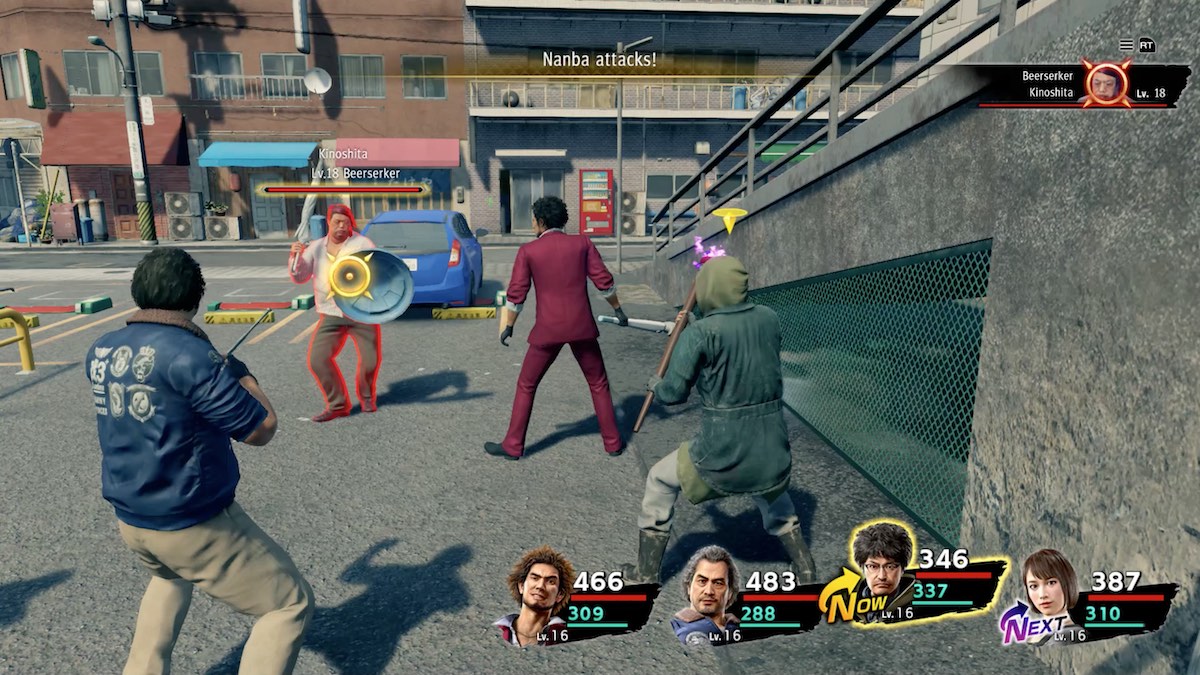
Obviously, Ichiban’s past plays a far bigger role than merely introducing his backstory, but the pacing that Like A Dragon chooses to get to that point, and the intertwining twists that you take you there what makes it the best writing to have ever graced the property.
As engaging as a world and its cast can be though, an RPG is nothing without solid gameplay to back it up, so it’s time to talk about the elephant in the room; the turn-based combat, and the totally revamped job system that drives it.
The short and skinny of it is that it totally freaking whips.
The beauty behind Like A Dragon’s transition to this format is how the subtlety of its interpretation of existing mechanics within the franchise. Each character is founded upon six base stats. Attack rules how 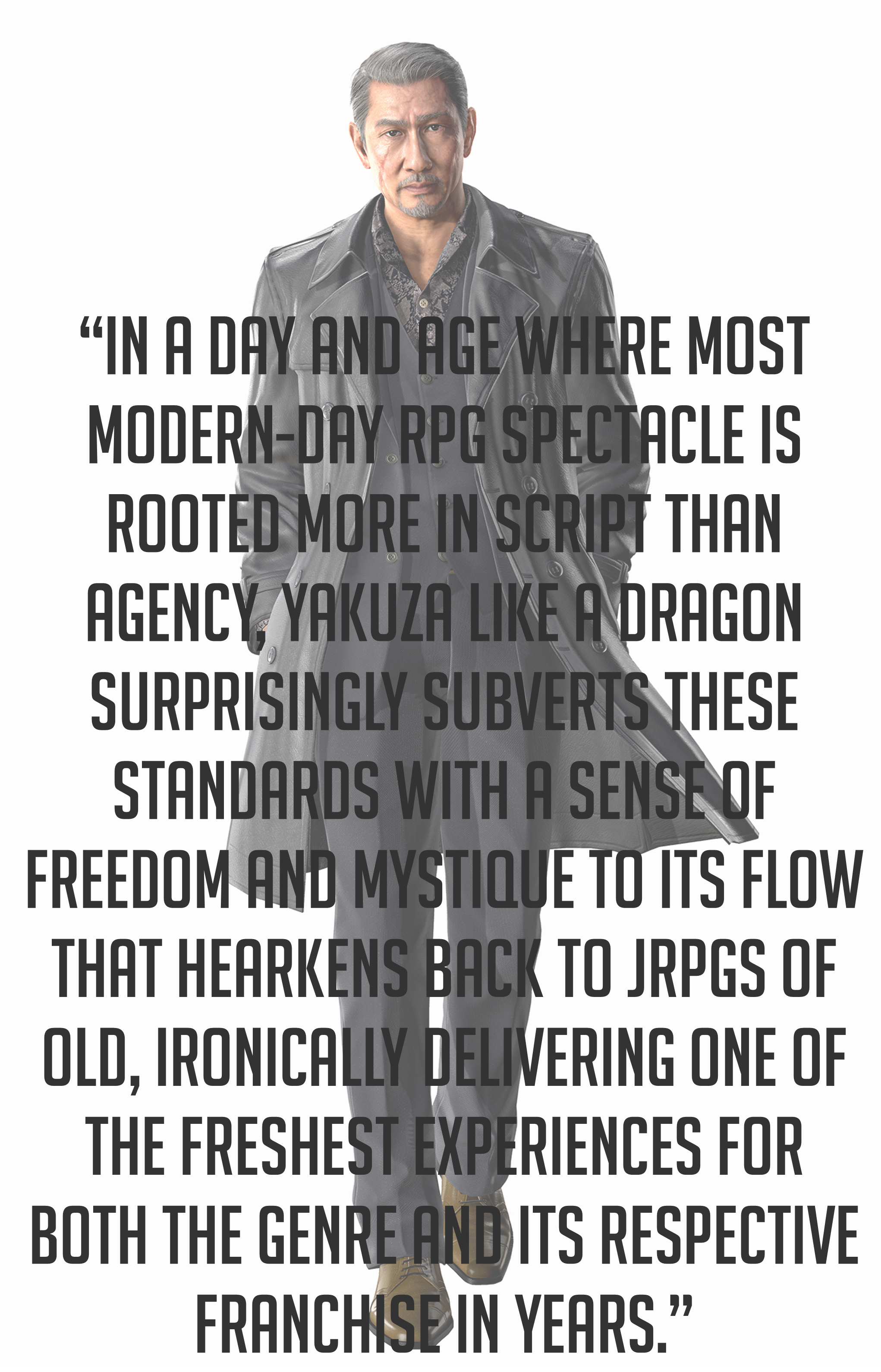 potent your damage output is, Defense ascertains how much damage is sustained, Magic determines the strength of your spells, Healing governs how effective any regeneration you receive is, Agility covers how fast you can move in a fight, and dexterity determines the range of values that equipment can boost any of the aforementioned stats.
potent your damage output is, Defense ascertains how much damage is sustained, Magic determines the strength of your spells, Healing governs how effective any regeneration you receive is, Agility covers how fast you can move in a fight, and dexterity determines the range of values that equipment can boost any of the aforementioned stats.
The hidden “Rock-paper-Scissors” value system from the previous entries returns with Blunt-Blade-Gun values accounting for physical attacks and its elemental Counterpart, Water-Electric-Fire accounting for the Magical classes. Where these distinctions played a minor role in the brawling combat, they play far more prominently into the battle scene of Like A Dragon, often being the deciding factor for a closely-matched encounter. Similar to the principles of Dragon Quest, brute strength and numbers won’t always secure you a victory, as success will gradually become down to how well a player can discern the different strengths and weaknesses enemy encounters will have based on these affinities.
The arrangement will feel right at home with anyone who has ever played a Final Fantasy game before, but the familiarities go beyond the mainstream contemporaries, as there are some tactics-lite mechanics at work that's reminiscent of Lunar Silver Star, and Grandia. Similar to the GameArts SEGA CD Darling, player positioning behind each party member is vital in planning any offensive, or defensive maneuver, especially for certain attacks. For example, if an assault is deployed near a foreign object on the battlefield, the party member in action will contextually use it in their barrage against the enemy in addition to their normal strikes. Another big factor to positioning is the proximity of your heroes are with one another, as knocking an enemy down to the floor will trigger an automatic follow-up from one of your teammates for some extra damage, all within the same turn. On the same token, enemy positioning will play a major role in how you proceed as enemies that are grouped together allow for wide range attacks to be used as crowd-control, giving players the chance to slam more goons down to the pavement in fewer turns. This dynamic is especially helpful during later segments of the game where you players will find themselves heavily outnumbered by larger mob encounters. The setup strikes just the right balance of being intuitive enough to learn, yet complex enough to master, but the main bridge that holds all that together is the Job System.
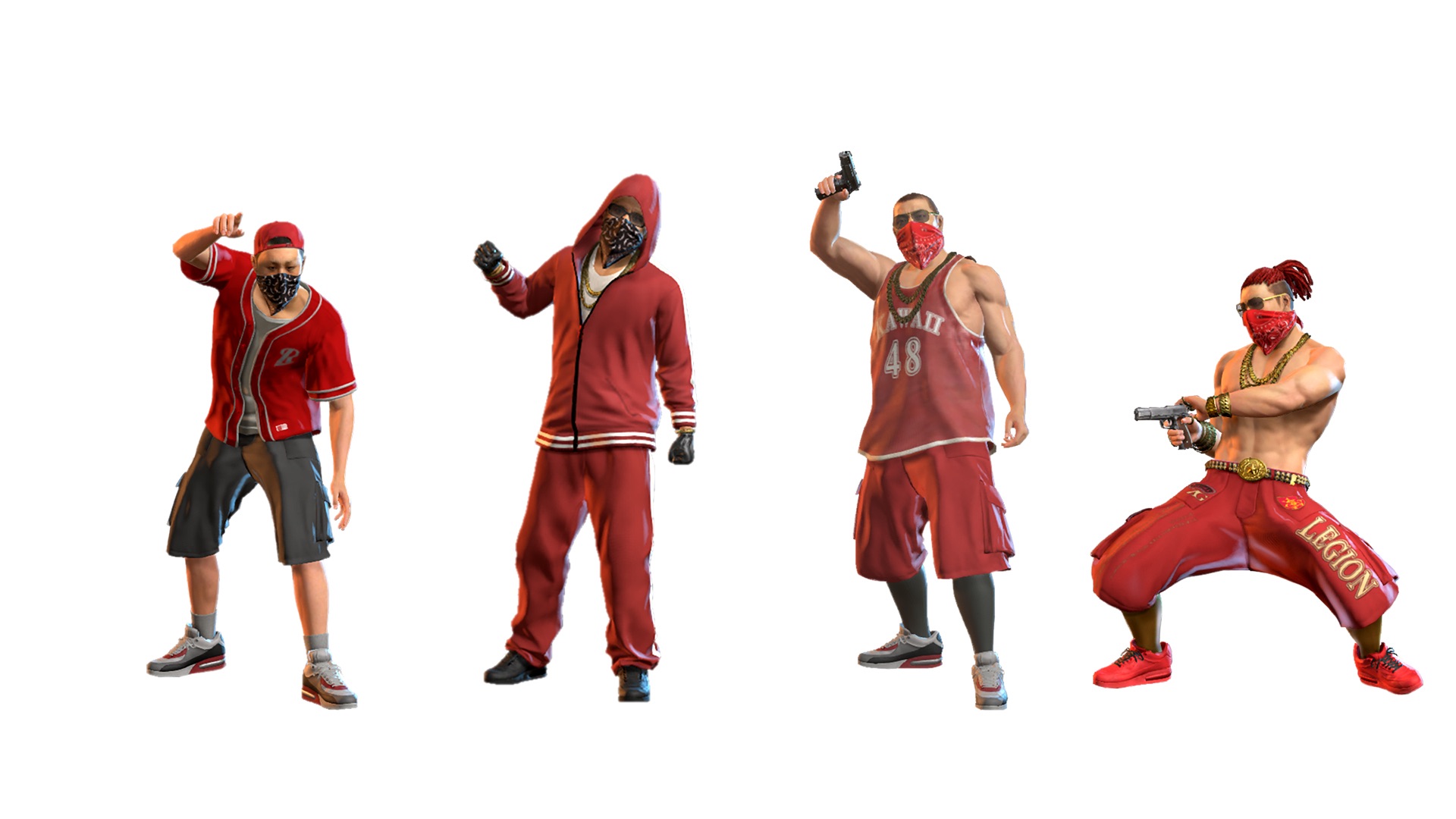 It would be one thing if RGG Studio paid tribute to the Godfathers of the RPG with an all-too reverent Job setup that’s been done so many other times before, but thankfully the developers went above and beyond to not only adapt the system around the combat but to build around the real-world physics of Yakuza’s unique setting. There are a total of 20 available jobs, eight of which are character-exclusive, thirteen being exclusive to male party members, the seven remaining being exclusive to the female-cast of the party, and finally, two of them hat are only accessible through paid DLC purchase. Choosing between 20 different careers may seem intimidating at first, but it’s actually made more simple thanks in part to Yakuza 7’s immaculate pacing. In the first ten hours of the campaign, players will only be allowed to choose from the base set of jobs that exclusive to each character, with the chance to gradually unlock new jobs as you level up the base level of your party members, and some of Kasuga’s personality stats (more on that later.)
It would be one thing if RGG Studio paid tribute to the Godfathers of the RPG with an all-too reverent Job setup that’s been done so many other times before, but thankfully the developers went above and beyond to not only adapt the system around the combat but to build around the real-world physics of Yakuza’s unique setting. There are a total of 20 available jobs, eight of which are character-exclusive, thirteen being exclusive to male party members, the seven remaining being exclusive to the female-cast of the party, and finally, two of them hat are only accessible through paid DLC purchase. Choosing between 20 different careers may seem intimidating at first, but it’s actually made more simple thanks in part to Yakuza 7’s immaculate pacing. In the first ten hours of the campaign, players will only be allowed to choose from the base set of jobs that exclusive to each character, with the chance to gradually unlock new jobs as you level up the base level of your party members, and some of Kasuga’s personality stats (more on that later.)
The Job’s themselves are fascinating in that there a large variety of advantages and disadvantages that they carry that can work to compliment, or compensate the inherent strengths and weaknesses of the characters who take them on. Say your character specializes in Blunt force but isn’t as fast or well versed in magic—assigning them the “Breakdancer” role will give them a slightly bigger edge to their blunt-force while gaining an added boost to their agility that wasn’t before, all at the cost of a magic skill that was never really that character’s forte to begin with. Experimenting between different jobs and the party member who take them never feels like a chore because there aren’t really any bad combinations out there. Ironically, with all the tribute that Like A Dragon pays to Dragon Quest, the flexibility of its Job System plays more akin to the likes of Pokémon, adding to the overall charm of its combat. Sure there are load-outs that are more effective than others—but the difficulty curve doesn’t outright punish players for going with a lineup that caters to their playstyle, making it more to Nintendo’s Monster RPG than the iconic yet unforgivingly challenging franchise it romanticizes.
Growing your party’s resources isn’t as linear as battling, resting, and repeat though, as players will also have to venture off the beaten path towards traditional Sub-Stories and mini-games to expand their abilities. Completing these side-quests not only earns you opportunities for limited-access experience, but they will also net you rare gear, summons, and another new addition to the series, enhancements to your Personality Traits.
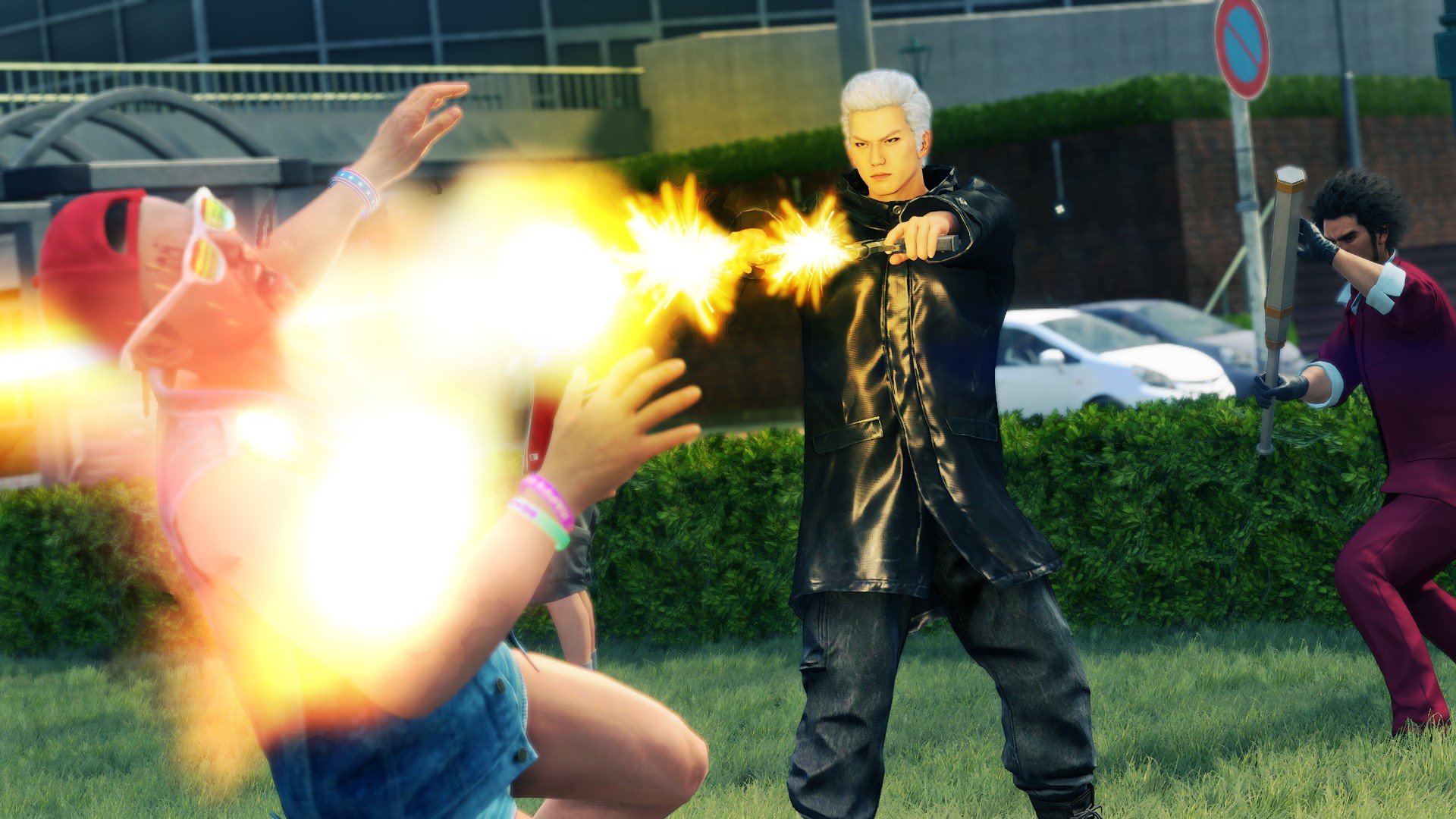
Similar to building street cred in previous entries, Kasuga will sport six different categories to his being that will have a wide range of effects on the adventure. Developing your Confidence, Kindness, Style, Intellect, Passion, and Charisma will do anything from bolstering your defense against certain status ailments to opening up exclusive Sub-Stories, NPC’s, and Mini-games that won’t be available to you without meeting a certain level with that Character Trait. Exploring these branches of development isn’t just fulfilling in of itself, but genuinely rewarding on how it serves the overall progression of your Party in the main campaign of the story.
I would be lying if I said that this entry into the series wasn’t dense by comparison, but believe me when I say that the brilliant rhythm to its pacing ensures that each new mechanics is just as intuitive as the last. In a day and age where most modern-day RPG spectacle is rooted more in script than agency, Yakuza: Like A Dragon surprisingly subverts these standards with a sense of freedom and mystique to its flow that hearkens back to JRPGs of old, ironically delivering one of the freshest experiences for both the genre and its respective franchise in years.
Get this wonderful gem of a game, because it truly is the start of something big from Ryu Ga Gotoku and SEGA.
 Dragon Quest,
Dragon Quest,  JRPG,
JRPG,  Playstation 4,
Playstation 4,  Ryū ga Gotoku Studio,
Ryū ga Gotoku Studio,  Sega,
Sega,  Xbox One,
Xbox One,  Xbox Series S,
Xbox Series S,  Xbox Series X,
Xbox Series X,  Yakuza,
Yakuza,  Yakuza Like A Dragon,
Yakuza Like A Dragon,  reboot | in
reboot | in  QCF Reviews
QCF Reviews 









